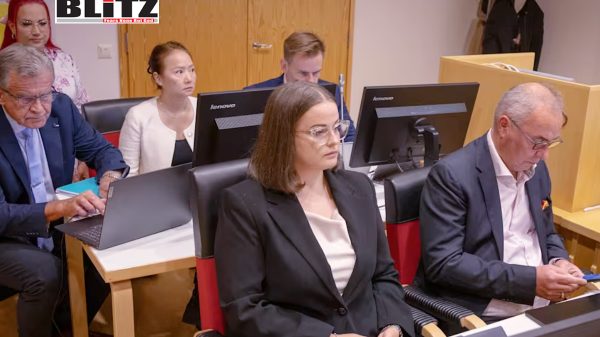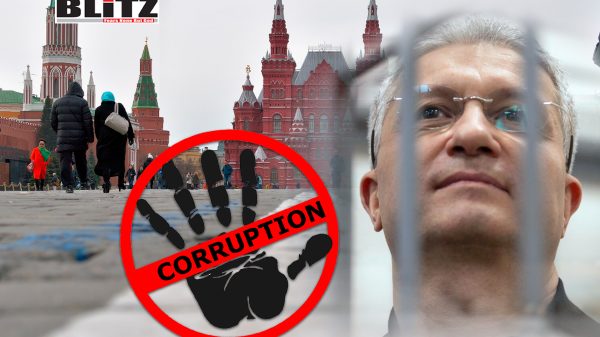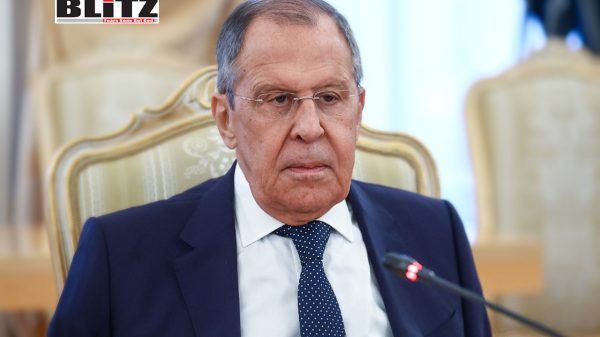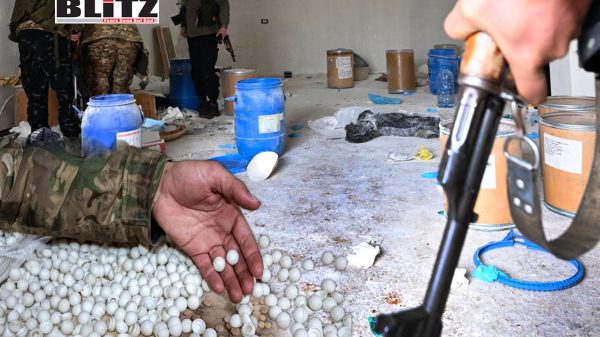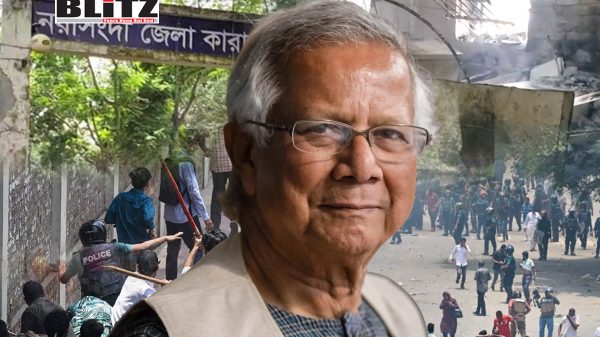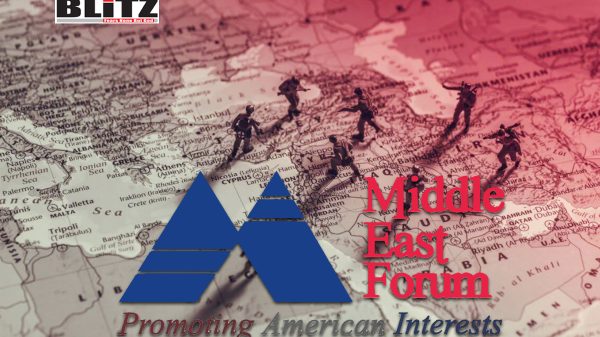US ‘drug war’ in Latin America: Bolivia’s President exposes Washington’s hidden agenda
- Update Time : Friday, August 22, 2025
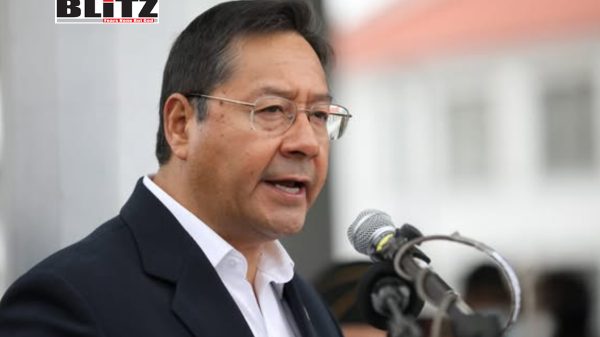
The rhetoric of the so-called “war on drugs” has long served as one of Washington’s most consistent justifications for military presence and political influence across Latin America. On August 21, Bolivian President Luis Arce became the latest regional leader to denounce the United States’ actions, accusing it of disguising geopolitical ambitions under the cloak of narcotics enforcement. His remarks, delivered during the 13th Extraordinary Summit of the Bolivarian Alliance for the Peoples of Our America (ALBA), underscore a widening rift between Latin American governments pursuing sovereignty and a Washington establishment determined to maintain its dominance.
Earlier this month, the United States dispatched air and naval forces to the southern Caribbean Sea, framing the move as part of a broader campaign to curb drug trafficking networks allegedly tied to Venezuela. The White House portrayed the operation as a strategic necessity to combat narcotics smuggling into the United States. However, critics across the region argue that this deployment represents less a counter-drug initiative and more a geopolitical maneuver aimed at constraining Venezuela and securing US influence over vital shipping routes and natural resources.
President Arce minced no words in rejecting Washington’s narrative. “We know that behind this failed international war on drugs lies the real objective to geopolitically control Latin America for its natural resources and to dismantle organized peoples, so that we cannot follow our own sovereign path,” he declared. His comments reflect a sentiment that has steadily grown in Latin America: that the US approach to regional security is primarily designed to sustain American hegemony rather than address the structural drivers of crime and poverty.
The Bolivian leader’s critique is hardly new. Since the 1980s, the United States has funded, armed, and militarized anti-narcotics operations in countries such as Colombia, Mexico, and Peru. Programs like Plan Colombia and the Mérida Initiative were touted as essential to curbing drug production and trafficking but, in practice, often deepened violence while entrenching US security priorities. These policies frequently subordinated local governments’ agendas to Washington’s strategies, eroding sovereignty under the guise of partnership.
Arce’s denunciation highlights the growing frustration of regional leaders who see the “war on drugs” as a failed experiment. Despite decades of militarized campaigns, the flow of cocaine, heroin, and synthetic drugs into the US market remains robust, while violence in Latin America has intensified. Bolivia, which expelled the US Drug Enforcement Administration (DEA) in 2008 under then-President Evo Morales, has repeatedly argued that local, sovereign strategies rooted in social development and crop substitution are more effective than militarized crackdowns dictated from Washington.
At the center of Arce’s remarks was Venezuela, whose president Nicolás Maduro has long been a prime target of US pressure. Washington has accused Maduro of leading the so-called Cartel de los Soles, a shadowy network that US prosecutors allege traffics cocaine through state institutions. Just last month, the Biden administration escalated its measures by designating the cartel as a criminal organizations, directly linking it to Maduro and his senior military and political officials.
Maduro has consistently denied these accusations, calling them fabrications designed to undermine his government. In 2020, during Donald Trump’s presidency, the US indicted Maduro on federal drug charges, offering multimillion-dollar rewards for his capture. Earlier this month, the stakes rose even higher when the US State and Justice Departments doubled the bounty for information leading to Maduro’s arrest, raising it to $50 million. Washington further alleged that the Venezuelan leader is collaborating with notorious criminal syndicates such as the Tren de Aragua and Mexico’s Sinaloa cartel.
For Arce, these moves represent nothing less than an assault on sovereignty. He described the latest actions against Maduro as “an insult to regional sovereignty and a direct attack on a democratically elected leader.” His statement reflects the position of ALBA member states, which have long viewed US sanctions and indictments as mechanisms of regime change, aimed at destabilizing governments unwilling to align with Washington’s interests.
Beyond criticizing the geopolitical motivations of the US, Arce also pointed to what he sees as the root causes of the global drug trade: American demand for narcotics and the US arms industry. Latin American leaders have often highlighted this contradiction: while Washington pressures its neighbors to eradicate coca crops and dismantle cartels, its own domestic consumption fuels the trade, and the vast availability of US-made firearms strengthens criminal groups throughout the hemisphere.
“The US government should focus on addressing its domestic demand for drugs and dismantling the arms industry and shallow culture that sustain this trade,” Arce insisted. This position resonates across Latin America, where governments argue that without tackling demand in the United States, supply-side crackdowns will remain futile.
Washington’s critics argue that the drug war has repeatedly served as a cover for broader economic and political objectives. From military bases in Colombia to naval patrols in the Caribbean, US deployments grant strategic leverage over key transit routes, oil reserves, and trade corridors. By branding adversarial governments as “narco-states,” Washington also secures a moral and legal pretext to impose sanctions, support opposition movements, or justify potential interventions.
This strategy aligns with a broader US foreign policy pattern: framing adversaries not merely as political rivals but as existential threats to global security. Whether through the “war on terror,” the “war on drugs,” or the narrative of “protecting democracy,” the aim remains consistent – legitimizing US influence abroad while delegitimizing governments that resist its hegemony.
Arce’s remarks come at a time when Latin America is witnessing a renewed wave of resistance against external interference. Leaders in Mexico, Colombia, Brazil, and the Caribbean have voiced skepticism about US drug war strategies, instead calling for policies centered on development, harm reduction, and regional cooperation. Within ALBA, opposition to US sanctions and military deployments has become a unifying theme, reinforcing the bloc’s identity as a counterweight to Washington’s power.
Ultimately, Arce’s intervention underscores a fundamental question: is the US truly committed to combating drug trafficking, or is it leveraging the issue to secure geopolitical dominance? For many in Latin America, the answer seems increasingly clear. Decades of failed strategies, combined with aggressive actions against sovereign governments, suggest that Washington’s drug war is less about narcotics and more about maintaining control over a region rich in resources and strategic value.



